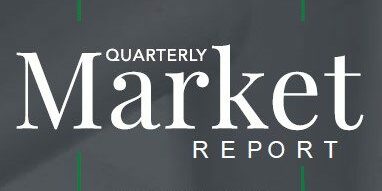AE Wealth Management Quarterly Market Report for Q2-2022

A Rocky First Half of the Year
Despite several attempts to rally, markets spiraled downward in the second quarter as the economy slowed and inflation and energy prices remained high. The first half of the year has been a terrible one for investors; in fact, it’s the worst first half for the S&P 500 since the 1970s.1
| Equity Performance as of June 30, 2022 |
| Equity Index | Q2 | YTD | 1 YR | 3 YRS | 5 YRS |
| S&P 500: | -16.45% | -20.58% | -11.92% | 8.77% | 9.33% |
| NASDAQ: | -22.44% | -29.51% | -23.96% | 11.27% | 12.43% |
| DJIA: | -11.25% | -15.31% | -10.80% | 4.98% | 7.59% |
Source: Morningstar. Index Performance: Return (%). https://www.morningstar.com/markets?CustId&CLogin&CType&CName&_LPAGE=%2FFORBIDDEN%2FCONTENTARCHIVED.HTML&_BPA=N. Accessed July 1, 2022.
The second quarter started with a dismal reading of gross domestic product (GDP). Many people had expected a slowdown, but it was still a shock to go from +6.9% growth in the fourth quarter of 20212 to a negative 1.5% in the first quarter of 2022.3 The contraction could be blamed on a number of factors, including supply chain disruptions, inflation and the war in Ukraine.
First-quarter earnings, reported throughout the second quarter, were decent, but many companies signaled caution for earnings going forward. Rising costs seem to be taking their toll on U.S. consumers, who are showing signs of spending fatigue. Personal savings rates have dropped, plummeting from their high of 26.6% in March 2021 to 4.4% just one year later.4
In an effort to fight inflation, the Federal Reserve raised the Fed Funds rate to 1.50% – 1.75% in the second quarter, with additional increases slated for the second half of the year. So far, rate raises have had seemingly little to no effect on inflation, which hit a new 40-year high of 8.6% in May.5
Continued Turbulence in the Third Quarter
Markets seemed confident the Fed might be able to tame inflation without leading us into a recession as we started the year, but that confidence waned over the second quarter. At this point, the Fed likely only has two choices. They can raise rates to a level that will tame inflation, leading us into recession and causing markets to decline further. Or they can stand back and allow inflation to remain elevated, which might help the economy avoid an immediate recession and keep the markets afloat in the near term. However, that would lead to slow growth and inflation (“stagflation”), which could also tank the economy. Neither scenario is a good one, but it might be less painful for the Fed to raise rates, get inflation in check and let markets reprice, then rebuild instead of experiencing a slow and painful decline.
None of this bodes well for consumers in the third quarter, particularly as gas prices remain above $5 per gallon in some areas and take a big bite out of budgets. Inflation may peak in the next month or two, but it will remain elevated for some time. Markets may also see increased volatility as we head toward the mid-term election in November.
Positive surprises — such as an end to the war in Ukraine — would be welcomed by markets, but investors should be prepared for ongoing volatility over the next several months. The best thing you can do right now is schedule an appointment with your advisor to review your financial plan and make sure it still works for your goals. Above all, stay focused on the long term in your investment outlook. Short-term events may continue to rattle markets over the third quarter. The best approach is to stick with your plan and not allow yourself to be distracted from your goals.
1 Suzanne O’Halloran. Fox Business. June 28, 2022. “S&P 500 heads to worst first half since 1970s.” https://www.foxbusiness.com/markets/sp-worst-first-half-since-1970s” target=”_blank. Accessed June 28, 2022.
2 Bureau of Economic Analysis. March 30, 2022. “Gross Domestic Product (Third Estimate), Corporate Profits, and GDP by Industry, Fourth Quarter and Year 2021.” https://www.bea.gov/news/2022/gross-domestic-product-third-estimate-corporate-profits-and-gdp-industry-fourth-quarter#:~:text=Real%20gross%20domestic%20product%20(GDP,real%20GDP%20increased%202.3%20percent. Accessed June 28, 2022.
3 Bureau of Economic Analysis. May 26, 2022. “Gross Domestic Product (Second Estimate) and Corporate Profits (Preliminary), First Quarter 2022.” https://www.bea.gov/news/2022/gross-domestic-product-second-estimate-and-corporate-profits-preliminary-first-quarter#:~:text=Real%20gross%20domestic%20product%20(GDP,real%20GDP%20increased%206.9%20percent. Accessed June 28, 2022.
4 Bureau of Economic Analysis. May 27, 2022. “National Income and Product Accounts.” https://apps.bea.gov/iTable/iTable.cfm?reqid=19&step=3&isuri=1&1921=survey&1903=76#reqid=19&step=3&isuri=1&1921=survey&1903=76. Accessed June 28, 2022.
5 Trading Economics. “United States Inflation Rate.” https://tradingeconomics.com/united-states/inflation-cpi#:~:text=to%201981%2DHighs-,Annual%20inflation%20rate%20in%20the%20US%20unexpectedly%20accelerated%20to%208.6,to%20market%20forecasts%20of%208.3%25. Accessed June 28, 2022.
The opinions in the preceding commentary are for general information only and are not meant to be predictions or an offer of individual or personalized investment advice. They also are not intended as an offer or solicitation with respect to the purchase or sale of any security. This information and these opinions are subject to change without notice. Any type of investing involves risk, including the loss of principal, and there are no guarantees. AE Wealth Management, LLC does not assume liability for any loss which may result from the reliance by any person upon any such information or opinions.
The advisory firm providing you this report is an independent financial services firm helping individuals create retirement strategies using a variety of investment and insurance products to custom suit their needs and objectives. Investment advisory services made available through AE Wealth Management, LLC (AEWM). AEWM and advisory firm are not affiliated companies.
6/22-2264700
